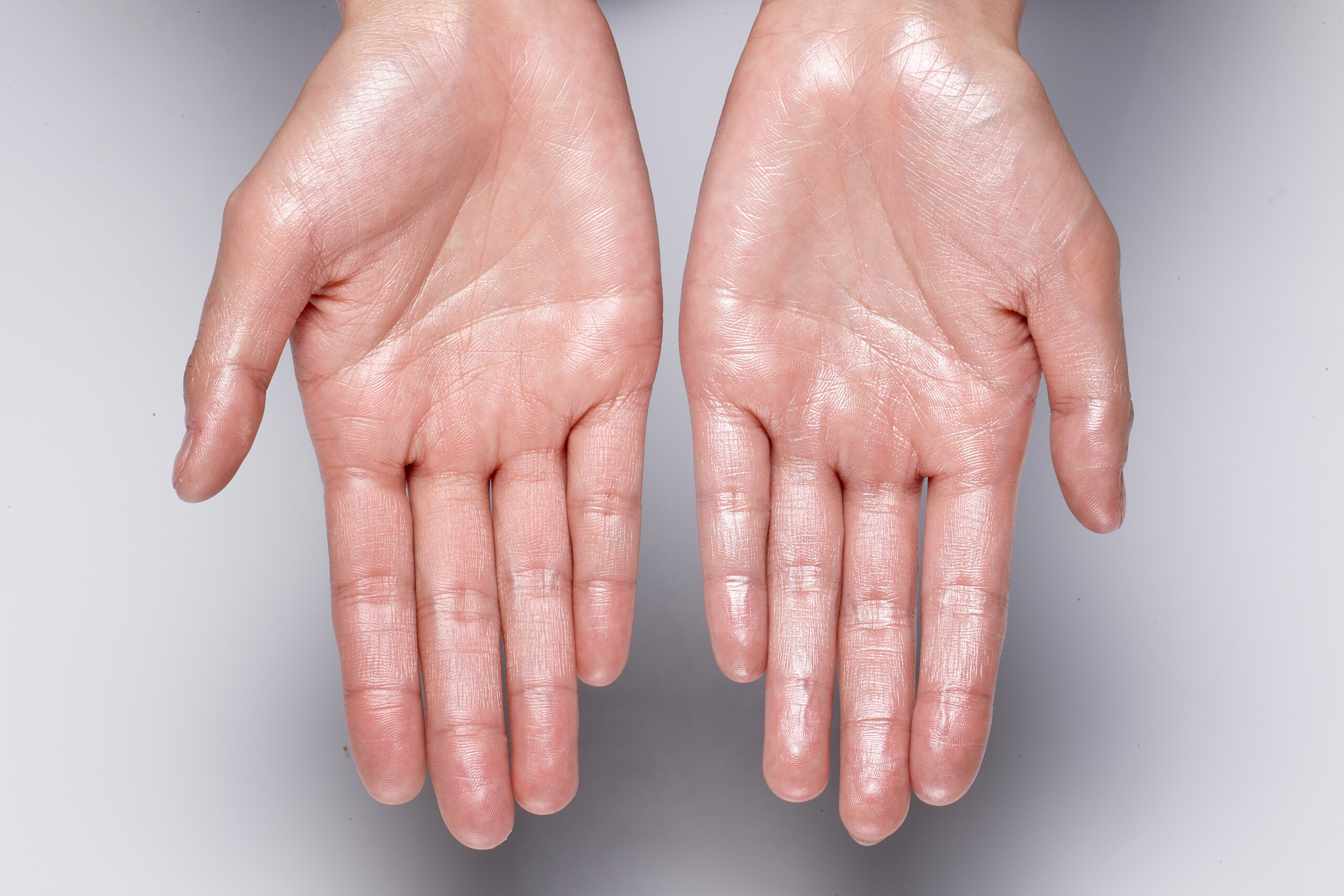How to Stop Sweaty Hands: Professional Dermatology Guidance for Managing Excessive Sweating
How to Stop Sweaty Hands: Professional Dermatology Guidance for Managing Excessive Sweating
Blog Article
Recognizing the Source of Excessive Sweating and Its Influence On Every Day Life
Too much sweating, likewise called hyperhidrosis, is a condition that affects a significant section of the population, yet its underlying causes and ramifications on everyday working continue to be rather enigmatic. While it is generally recognized as a physiological action to control body temperature, the triggers for extreme sweating can differ commonly among individuals, encompassing not only physical variables however psychological and also emotional elements. The impact of this problem prolongs beyond plain discomfort, often influencing social communications and general top quality of life. By diving right into the origin of hyperhidrosis and exploring its diverse results, a much deeper understanding of this prevalent issue can be gained, shedding light on the intricacies that people facing too much sweating navigate on a day-to-day basis.
Physiology of Sweat Glands
The guideline of sweat manufacturing, an important physiological process, is mostly regulated by the activity of sweat glands dispersed across the human body. Sweat glands are categorized right into 2 main types: eccrine and apocrine glands.
When the body temperature climbs, either as a result of physical task, heats, or psychological tension, the nerves causes the sweat glands to create sweat. This sweat is made up largely of water and electrolytes like salt and chloride. The procedure of sweat production is vital for keeping the body's interior temperature level within a narrow, optimal range, highlighting the crucial function gland play in human physiology.
Triggers for Excessive Sweating
In recognizing the origin of excessive sweating, it is critical to determine the triggers that can lead to this physiological action. Extreme sweating, likewise referred to as hyperhidrosis, can be triggered by different variables, both physiological and ecological. One common trigger is emotional stress or stress and anxiety, which can stimulate the body's gland to generate more sweat than is required for cooling down. Physical exertion, heats, and spicy foods are also understood to set off excessive sweating in individuals prone to this problem. Specific medical problems like hyperthyroidism, menopause, or diabetic issues can add to too much sweating as well.
Additionally, medicines such as some antidepressants, opioids, and particular supplements can also function as triggers for hyperhidrosis. Understanding these triggers is important in handling too much sweating efficiently - Treatment for hyperhydrosis of hands and feet. By determining and attending to the specific triggers that prompt too much sweating in an individual, medical care service providers can create customized treatment strategies to ease this condition and improve the person's lifestyle
Medical Conditions Associated
Connected with extreme sweating are numerous medical problems that can exacerbate this physiological response. One usual problem is hyperhidrosis, a condition characterized by unusually raised sweating that exceeds the body's thermoregulatory demands. This can manifest in focal locations like the hands, soles, underarms, or face, impacting a person's lifestyle due to social embarrassment and pain.
Furthermore, endocrine disorders such as hyperthyroidism, diabetes, and menopausal warm flashes can likewise cause extreme sweating. Hyperthyroidism causes an overflow of thyroid hormonal agents, increasing metabolic rate and activating sweating. Diabetic issues can induce sweating episodes, specifically during hypoglycemic episodes when blood glucose degrees go down as well low. Menopausal hot flashes, connected to hormone variations during menopause, can create unexpected and extreme sweating, typically come with by flushing and heart palpitations.
Moreover, infections like consumption, HIV, and endocarditis have been connected with night sweats, a typical symptom understood to interrupt sleep and influence overall health. These medical conditions highlight the diverse series of underlying aspects that can add to too much sweating, requiring extensive examination and administration by medical care specialists.
Emotional and psychological Elements

Influence On Social Communications
Excessive sweating can have extensive effects on a person's capacity to involve comfortably in social communications. The visible indications of sweat spots or wet patches on garments can lead to shame and self-consciousness, triggering people to withdraw from social circumstances. This withdrawal can impact partnerships, limitation social tasks, and hinder personal and specialist development.

In addition, the stress and anxiety and self-confidence issues stemming from extreme sweating can influence interaction and social skills. Individuals might struggle to focus on discussions, join group activities, or link express themselves confidently. This can cause sensations of seclusion and isolation, as social connections come to be testing to maintain.
Verdict

While Our site it is commonly comprehended as a physical response to control body temperature, the triggers for too much sweating can vary commonly among individuals, incorporating not just physical factors yet psychological and likewise emotional elements. By diving into the root causes of hyperhidrosis and discovering its multifaceted results, a deeper understanding of this pervasive concern can be gained, losing light on the complexities that individuals grappling with excessive sweating navigate on an everyday basis.
Physical exertion, high temperature levels, Click Here and spicy foods are also understood to trigger extreme sweating in individuals susceptible to this problem. By determining and dealing with the particular triggers that trigger extreme sweating in a private, healthcare service providers can develop individualized therapy plans to relieve this problem and improve the individual's top quality of life.
Too much sweating can have profound effects on a person's capability to involve conveniently in social interactions.
Report this page